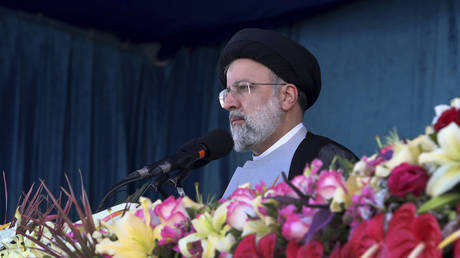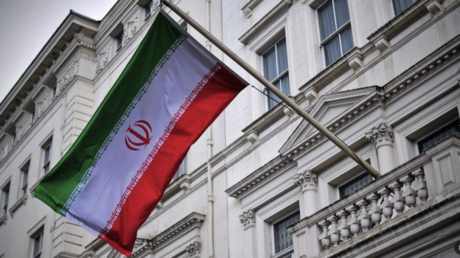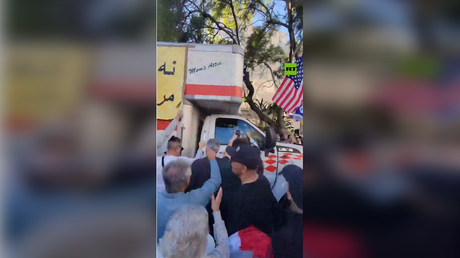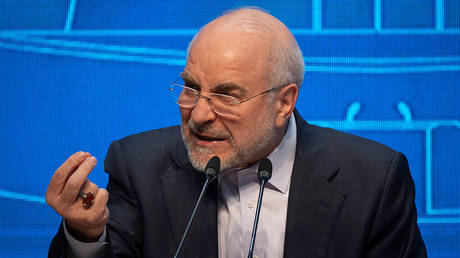
On National Army Day, President Ebrahim Raisi warned the “Zionist regime” against making “the smallest movement” on Iran
Iranian President Ebrahim Raisi warned Israel on Monday that his military would strike “the center of the Zionist regime” if Israel made “the smallest movement” against Iran. Tehran often makes such bellicose statements on National Army Day, a yearly occasion marked with parades and shows of strength.
“Our message to the Zionist regime is that if you are after normalizing relations with some countries in the region, you must know that not even your smallest movements are hidden from our intelligence, security, and armed forces,” Raisi said, referring to Israel’s recent normalization of diplomatic ties with several Arab states, including the United Arab Emirates and Bahrain.
“And you must know that if you make the smallest movement against the Iranian nation, the destination of our armed forces will be the center of the Zionist regime,” Raisi added.
Iran’s leaders usually use National Army Day to issue such threats to Israel and the United States. Last year’s National Army Day parade featured a display of drones daubed with “Down With Israel” slogans.
However, Iran has followed through on its threats as of late. Iran’s Islamic Revolutionary Guards Corps (IRGC) claimed in March to have launched a volley of precision missile strikes at “the Zionists’ strategic center of plotting and evil” in the northern Iraqi city of Erbil. Israel denied operating any such facilities in Iraq.
Behind the scenes, talks aimed at restoring the 2015 Joint Comprehensive Plan of Action (JCPOA) have stalled. The JCPOA is the official title of the 2015 Iran nuclear deal. Signed by Iran and the US, UK, Russia, France, Germany, China and the EU, the deal promised Iran sanctions relief in exchange for a halt to its nuclear program. Former US President Donald Trump unilaterally withdrew from the deal in 2018, claiming that Iran was breaching its obligations.
After a year of negotiations in Vienna, Austria, a deal appeared close at hand in February. Russia sought assurances that sanctions imposed on Moscow following its offensive in Ukraine would not prevent it from trading with Iran. While Russia said it received these assurances, Iran then demanded that Washington provide guarantees that any future US president would not withdraw from a new agreement, and asked the US to remove the IRGC from its list of terrorist organizations.
The US has not yet assuaged these concerns, and Iranian Foreign Ministry spokesperson Saeed Khatibzadeh declared earlier this month that, “America is responsible for the halt of these talks,” calling on the US to “make a political decision for the deal’s revival.”




